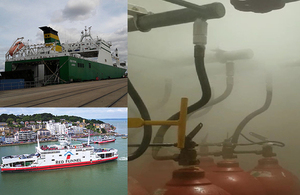Press release: Landmark Agriculture Bill to deliver a Green Brexit
Legislation to deliver a cleaner and healthier environment for future generations after nearly half a century under EU rules is being introduced into Parliament today (12 September).
The Agriculture Bill sets out how farmers and land managers will in future be paid for “public goods”, such as better air and water quality, improved soil health, higher animal welfare standards, public access to the countryside and measures to reduce flooding.
This will replace the current subsidy system of Direct Payments, which is ineffective and pays farmers based on the total amount of land farmed. These payments are skewed towards the largest landowners and are not linked to any specific public benefits. The top 10% of recipients currently receive almost 50% of total payments, while the bottom 20% receive just 2%.
In its place, a new Environmental Land Management system will start from next year. The government will work together with farmers to design, develop and trial the new approach. Under the new system, farmers and land managers who provide the greatest environmental benefits will secure the largest rewards, laying the foundations for a Green Brexit.
The Bill will also be underpinned by measures to increase productivity and invest in (R&D).
For example, there will be funding available for farmers to come together to develop and get the research projects that they want and need, whether that be on soil health or sustainable livestock farming . This will lead to practical gains for farmers that help them become more profitable and reduce their environmental footprint.
The government will also be able to make payments during the seven year transition period for famers to invest in new technologies and methods that boost productivity.
Environment Secretary Michael Gove said:
The introduction of the Agriculture Bill is an historic moment as we leave the EU and move towards a brighter future for farming.
After nearly 50 years of being tied to burdensome and outdated EU rules, we have an opportunity to deliver a Green Brexit.
This Bill will allow us to reward farmers who protect our environment, leaving the countryside in a cleaner, greener and healthier state for future generations.
Critically, we will also provide the smooth and gradual transition that farmers and land managers need to plan ahead.
Farmers will be supported over a seven year transition period as we as leave the EU’s Common Agricultural Policy (CAP).
For 2019, Direct Payments will be made on the same basis as now, subject to simplifications where possible. Direct Payments for 2020 will also be made in much the same way as now. Simplifications will be made as soon as possible, subject to the terms of the overall Brexit implementation period. There will then be an agricultural transition period in England between 2021 and 2027 as payments are gradually phased out.
During consultation, there was a widespread support for applying reductions to Direct Payments more widely. All farmers will therefore see some reduction to their payments from the start of the transition, although those who receive the highest payments will see bigger reductions initially. This will free up funds to invest in public goods.
To help new entrants get into the sector and give farmers flexibility to plan for the future, Direct Payments during the agricultural transition period up until 2027 will be “delinked” from the requirement to farm the land.
These payments, which may be calculated according to money received in previous years, can be used by farmers to invest in their business, diversify their activities or else retire from farming and give way for new people to enter.
The Bill also sets out how the government will strengthen transparency in the supply chain to help farmers get a better deal in the marketplace.
By collecting data from across the supply chain, the government will help food producers strengthen their negotiating position at the farm gate and seek a fairer return.
The introduction of the Agriculture Bill now means that all the necessary measures will be in place for the start of the agricultural transition in 2021, delivering a smooth transition to the new domestic policy.

